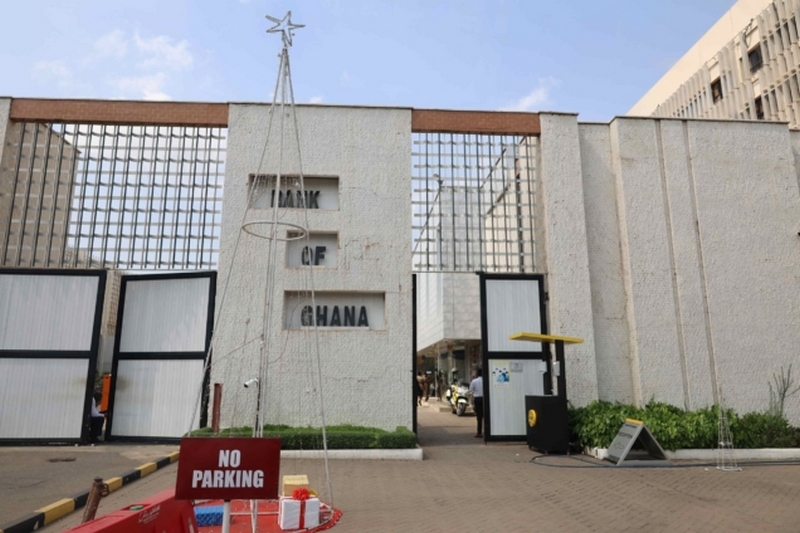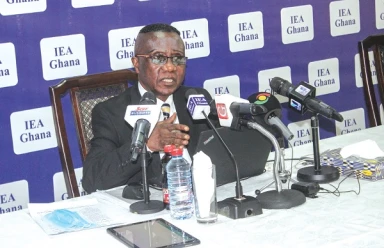The Institute for Liberty and Policy Innovation (ILAPI) has revealed that the Bank of Ghana (BoG) currently holds a substantial sum in three currencies- Cedis, British Pounds, and US Dollars, all from dormant accounts in financial institutions across the country between 2016 and 2023.
In Ghanaian cedis, more than GH₵167.8 million is held by BoG. Additionally, the bank has $14.6 million, €2.3 million, and £2.4 million in these dormant accounts.
These funds are believed to belong to deceased individuals, mostly those who died in disasters such as floods, road accidents, and deaths.
In a press statement issued by ILAPI on Tuesday, 5th November 2024, ILAPI’s Executive Director, Peter Bismark Kwofie, said: “We believe some of these funds could belong to the deceased who died in road traffic accidents, floods, and other incidents. In most cases, their families are unaware.”
Mr. Kwofie disclosed that “There are over GH₵167.8 million in local currency and over $14.6 million in dormant accounts at the BoG. There is also over £2.4 million and €2.3 million, accumulated between 2016 and 2023. Between 2021 and July 2024, a total of 1,448,660 dormant accounts were transferred to the BoG.”
According to him, “Dormant accounts and their funds at regulated financial institutions are transferred to the BoG when the accounts become inactive for a period of five years, in accordance with Section 92 of the Banks and Specialist Deposit-taking Institutions Act, 2016 (Act 930).”
Section 143 of the Act defines a dormant account as one that has had no customer-initiated activity, either by the account holder or a third party on the account holder’s behalf, for a period of two years. These funds are then transferred to the Dormant Account Register (DAR) of the banks.
ILAPI also argued that many vulnerable Ghanaians continue to struggle for survival, while the amounts held in dormant accounts could help meet the needs of their families. The organisation has called on the BoG to identify and disburse the money to the next of kin of the dormant account holders.
“Funds that could have taken children, spouses, and families out of poverty are being kept by regulated financial institutions, and the Bank of Ghana, in the name of dormancy,” the statement said. “The laws do not allow the BoG to trace families to help them access funds of the deceased. It is important to remember that some of these beneficiaries depended on their deceased relatives for education and economic survival. Therefore, their inability to access these funds forces them to drop out of school and struggle to survive, which could lead to social vices and poverty.” he said.
Legal measures to reclaim the funds
Mr Kwofie pointed out that “In the research report commissioned in 2023 by ILAPI to streamline the administrative processes for accessing the funds of the deceased, over 95% of respondents indicated that the process is cumbersome, with 70% abandoning it altogether, which plunges entire families into poverty.”
He continued, “Accordingly, dormant accounts and their funds at regulated financial institutions are transferred to the BoG when the accounts become inactive for five years, as stipulated in Section 92 of the Banks and Specialised Deposit-taking Institutions Act, 2016 (Act 930). In February 2021, the BoG issued Unclaimed Balances and Dormant Accounts Directives to all regulated financial institutions. Section 143 of the Act classifies a dormant account as one with a time deposit account that has had no customer-initiated activity for two years. Such funds are transferred to the Dormant Account Register (DAR) of the banks.”
ILAPI is, therefore, demanding the following actions from the BoG:
1. The BoG should issue directives to all banks requiring that the Ghana Card of the next of kin be requested during account opening to avoid identity crises and reduce the long timelines in investigations concerning deceased account holders.
2. Clearly defined policies on the management of dormant accounts should be made available to the public to ensure transparency and build trust.
3. A review of the law to allow the BoG to trace the families and next of kin of dormant account holders.
4. An annual report on dormant accounts and the funds received should be released as part of the BoG’s annual reports.
5. The BoG should use the national identification system and collaborate with local government bodies to identify beneficiaries or the next of kin of dormant account holders.
6. A policy should be introduced to set a specific number of years for the BoG to retain unclaimed funds from dormant accounts, with a system in place to trace families and allow them to access the funds through recognised administrative and legal procedures.




